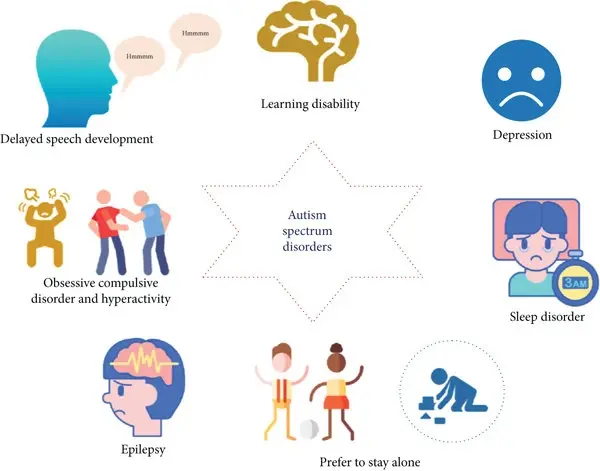Autism Spectrum Disorders - DRHC Dubai Psychiatry Clinic
Autism spectrum disorder (ASD) is a developmental disorder that affects communication, social interaction, and behavior. It is called a "spectrum" disorder because it can present with a wide range of symptoms and severity levels, which can vary greatly from person to person.
Some common characteristics of ASD include:
Social difficulties:
Social difficulties are a key feature of autism spectrum disorder (ASD). Individuals with ASD often struggle with understanding social cues, which can make it challenging for them to interact with others in typical ways. Some specific social difficulties experienced by individuals with ASD include:
- Difficulty with social communication: This includes challenges in understanding and using verbal and nonverbal communication. For example, a person with ASD may have trouble maintaining a conversation, understanding jokes or sarcasm, or interpreting facial expressions and body language.
- Trouble with social interactions: Individuals with ASD may find it difficult to make and maintain friendships. They may have trouble understanding the social rules that govern interactions, such as taking turns in conversation or sharing interests with others.
- Limited interest in socializing: Some individuals with ASD may not seek out social interactions or may prefer to be alone. They may have specific interests or activities that they are intensely focused on, to the exclusion of other social opportunities.
- Sensory sensitivities: Sensory sensitivities are common in individuals with ASD and can affect their social interactions. For example, they may be sensitive to certain sounds or textures, which can make social situations overwhelming or uncomfortable.
- Difficulty understanding others' perspectives: Individuals with ASD may have difficulty understanding other people's thoughts, feelings, and intentions, which can impact their ability to empathize and respond appropriately in social situations.
These social difficulties can vary widely among individuals with ASD, and not everyone will experience all of these challenges. However, these difficulties can significantly impact the quality of life for individuals with ASD, highlighting the importance of early intervention and support.
Communication challenges:
It's important to note that the communication challenges experienced by individuals with ASD can vary widely. Some individuals may have relatively mild difficulties, while others may be nonverbal or have very limited speech. Early intervention, speech therapy, and alternative communication methods can help individuals with ASD improve their communication skills and quality of life.
Repetitive behaviors:
This can include repetitive movements (e.g., rocking, hand-flapping), insistence on sameness or routines, and intense interests in specific topics.
Sensory sensitivities:
Sensory sensitivities are common in individuals with autism spectrum disorder (ASD). People with ASD may experience heightened sensitivity or decreased sensitivity to sensory stimuli, such as sights, sounds, smells, textures, and tastes. These sensitivities can vary widely among individuals and can impact daily life in various ways.
Unusual responses to sensory stimuli:
Unusual responses to sensory stimuli are common in individuals with autism spectrum disorder (ASD). These responses can vary widely and may include both over-responsivity (hypersensitivity) and under-responsivity (hyposensitivity) to sensory input.
ASD is typically diagnosed in early childhood, but it can be diagnosed later in life as well. Early intervention, such as behavioral therapies and educational support, can help improve outcomes for individuals with ASD. While there is no cure for ASD, interventions and support services can help individuals with ASD lead fulfilling lives.
.png?width=281&height=59&name=bookanappointment%20(1).png)
If you are experiencing any signs and symptoms of an Autism Spectrum Disorder, please don't hesitate to contact our best psychiatrist in Dubai at the Dr Rami Hamed Center. Call +97142798200 to Schedule Your Appointment Today. We have the best psychiatrist doctor, and our psychiatry clinic is situated in Dubai Healthcare City.




.png?width=281&height=59&name=bookanappointment%20(1).png)
.png?width=1080&height=1080&name=DR%20KIRTI%20(1).png)





